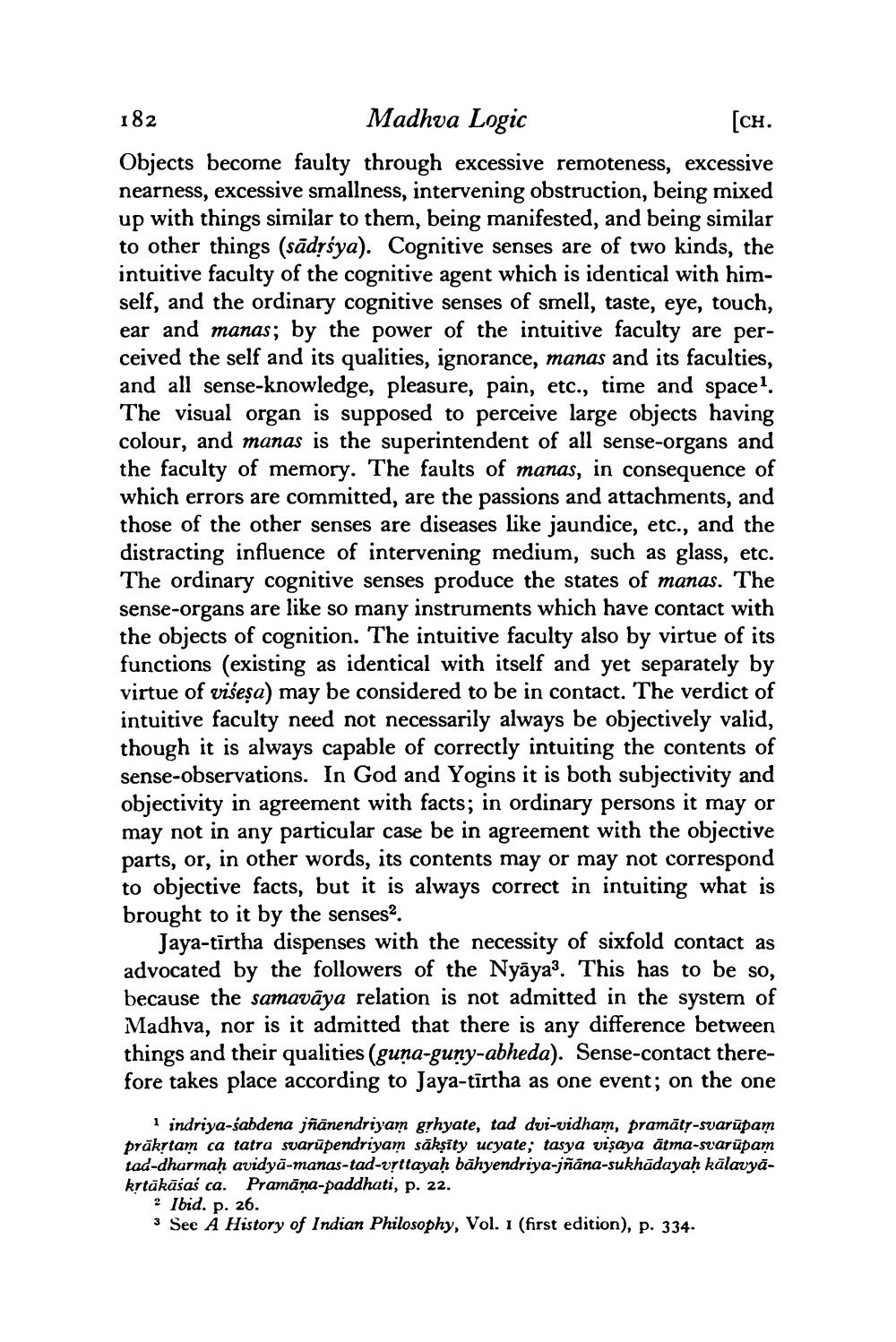________________
182 Madhva Logic
[CH. Objects become faulty through excessive remoteness, excessive nearness, excessive smallness, intervening obstruction, being mixed up with things similar to them, being manifested, and being similar to other things (sādụśya). Cognitive senses are of two kinds, the intuitive faculty of the cognitive agent which is identical with himself, and the ordinary cognitive senses of smell, taste, eye, touch, ear and manas; by the power of the intuitive faculty are perceived the self and its qualities, ignorance, manas and its faculties, and all sense-knowledge, pleasure, pain, etc., time and space! The visual organ is supposed to perceive large objects having colour, and manas is the superintendent of all sense-organs and the faculty of memory. The faults of manas, in consequence of which errors are committed, are the passions and attachments, and those of the other senses are diseases like jaundice, etc., and the distracting influence of intervening medium, such as glass, etc. The ordinary cognitive senses produce the states of manas. The sense-organs are like so many instruments which have contact with the objects of cognition. The intuitive faculty also by virtue of its functions (existing as identical with itself and yet separately by virtue of viseșa) may be considered to be in contact. The verdict of intuitive faculty need not necessarily always be objectively valid, though it is always capable of correctly intuiting the contents of sense-observations. In God and Yogins it is both subjectivity and objectivity in agreement with facts; in ordinary persons it may or may not in any particular case be in agreement with the objective parts, or, in other words, its contents may or may not correspond to objective facts, but it is always correct in intuiting what is brought to it by the senses.
Jaya-tīrtha dispenses with the necessity of sixfold contact as advocated by the followers of the Nyāyal. This has to be so, because the samavāya relation is not admitted in the system of Madhva, nor is it admitted that there is any difference between things and their qualities (guna-guny-abheda). Sense-contact therefore takes place according to Jaya-tīrtha as one event; on the one
1 indriya-sabdena jñānendriyam grhyate, tad dvi-vidham, pramātr-svarūpam prākstam ca tatra svarūpendriyam sāksīty ucyate; tasya visaya ātma-svarūpam tad-dharmaḥ avidyā-manas-tad-urttayaḥ bāhyendriya-jñāna-sukhādayaḥ kālavyākrtākāsas ca. Pramāna-paddhati, p. 22.
2 Ibid. p. 26. 3 See A History of Indian Philosophy, Vol. 1 (first edition), p. 334.




